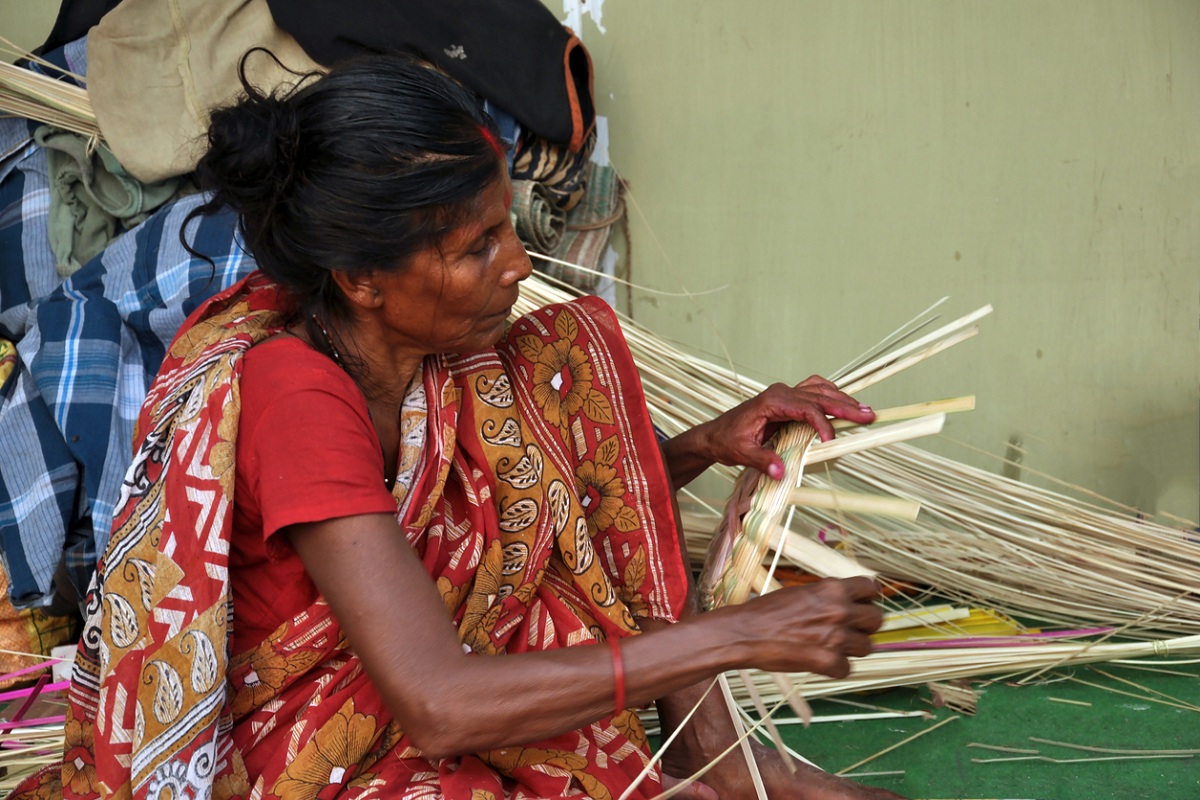In a move aimed at making the bamboo sector in India profitable, Khadi and Village Industries Commission (KVIC) on Sunday urged the Centre to lift the “export prohibition” on bamboo charcoal for optimum utilization of raw bamboo and higher profitability for the bamboo industry in the country.
“One of the biggest challenges that the Indian bamboo industry faces today is the extremely high input cost owing to inadequate utilization of bamboo. However, export of bamboo charcoal would ensure complete utilization of the bamboo waste and thus make the bamboo business more profitable,” a ministry of micro, small and medium enterprises note here stated.
Advertisement
Earlier, KVIC Chairman Vinai Kumar Saxena had written to Union Minister of Commerce and Industries Piyush Goyal seeking lifting of export restriction on bamboo charcoal for the larger benefit of the bamboo industry.
In India, bamboo is mostly used in the manufacturing of Agarbatti wherein, a maximum of 16 percent, the upper layers of the bamboo, is used for manufacturing bamboo sticks while the remaining 84 percent of bamboo is a complete waste.
The Bamboo waste generated in Agarbatti and bamboo craft industries is not being utilized commercially, as a result, the bamboo input cost for round bamboo sticks is in the range of Rs 25,000 to Rs 40,000 per MT as against the average Bamboo cost of Rs 4,000 to Rs 5,000 per MT.
Compared to this, the bamboo price in China is Rs 8,000 to Rs 10,000 per MT but their input cost is Rs 12,000 to Rs 15,000 per MT owing to 100 percent waste utilization, it was explained to the government.
KVIC Chairman Saxena said the bamboo waste can be best utilized by making “Bamboo Charcoal” which, though has very limited use within the domestic market but it is hugely in demand in the international market. However, the Indian bamboo industry is not able to tap the opportunity due to its “export prohibition”.
Considering the repeated requests of the industry, KVIC has requested the government to consider lifting the export restriction on bamboo charcoal. Saxena said this would not only enable the industry to exploit huge global demand but also enhance the profitability of existing KVIC units by proper utilisation of bamboo waste and thus contribute to the PM’s vision of “Waste to Wealth.
It may be noted, the world import demand for bamboo charcoal has been hovering in the range of $ 1.5 to 2 billion and has been growing at the rate of 6 percent in recent years. Bamboo charcoal for barbeque sells for about Rs 21,000 to Rs 25,000 per ton in the international market. Besides, it is also used for soil nutrition and as a raw material for manufacturing activated charcoal. Rising import demand is witnessed in countries like the USA, Japan, Korea, Belgium, Germany, Italy, France, and UK at negligible import duty, the Ministry note stated.
It is pertinent to mention that an amendment in export policy for Bamboo products under the HS code 141100 was made in 2017, wherein exports of all the Bamboo products were kept in the OGL category and were “Free” to exports. However, exports of Bamboo Charcoal, Bamboo Pulp and unprocessed shoots were still kept under the prohibited category.
Earlier, in order to create more employment in bamboo-based industries, particularly in the Agarbatti industry, KVIC, in 2019, had requested the government for policy changes in import of raw agarbatti and import duty on round bamboo sticks that were heavily imported from Vietnam and China. In September 2019, the Ministry of Commerce “restricted” the import of raw agarbatti and in June 2020, the Ministry of Finance increased the import duty on round bamboo sticks.
As an implication of the policy changes, Agarbatti and bamboo-craft industries in India have witnessed the revival of hundreds of closed units. After the policy changes, KVIC has set up 1658 new agarbatti manufacturing units under its flagship Prime Minister’s Employment Generation Program (PMEGP).
Similarly, 1121 new bamboo crafts-related units, too, have been set up across the country. This has not only optimized the use of bamboo but also created sustainable employment in rural areas, the Ministry note further stated.









